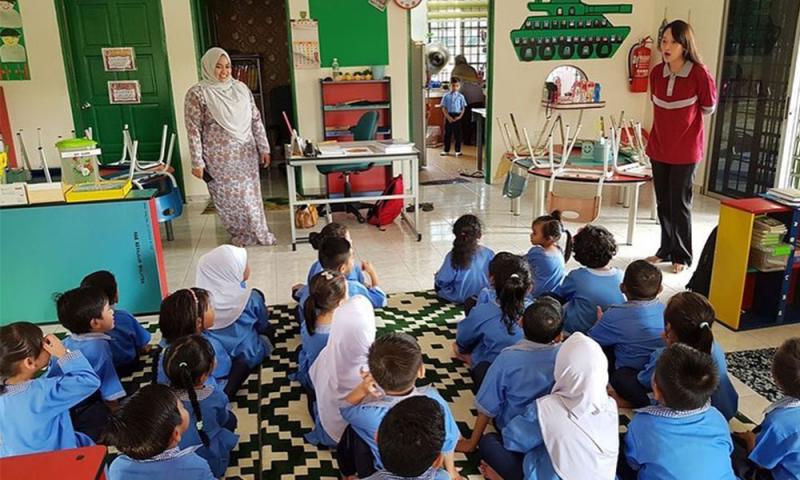LETTER | What started as a serious policy statement soon became an afterthought: early childhood educators must at least hold a diploma to work in preschools and childcare centres.
This bureaucratic article of faith was enshrined in the Malaysia Education Blueprint 2013-2025 and parroted by the entire pecking order of ministry officials and academics with the slimmest link to early years learning.
While some private childcare centres and preschools took this dictate seriously, most didn’t, which ultimately gave rise to SPM and STPM graduates working alongside degree holders for the same pay. This reality is something the government summarily ignores even today.
Now, the Women, Family, and Community Development Ministry has renewed the call for all babysitters, managers, and supervisors at childcare centres and preschools to complete the Permata Early Childhood Care and Education Course, rolled out over a decade ago and thenceforth largely ignored.
But why should experienced early-years educators burn their time and energy attending another course that won’t pull them up the earnings ladder?
Minister Nancy Shukri claims completion of this course must be mandatory to “create a more competent workforce, therefore reducing the recurrence of accidents and fatalities at childcare centres”.
Teachers aren’t superhuman
I fear the honourable minister may be under the mistaken impression that untrained teachers are solely responsible for injuries caused to children at preschools. This industry bears old wounds that run far deeper than meets the eye.
Allow me to illustrate with examples. A Teacher X I knew was a diploma graduate in early childhood education (ECE). Cautious and attentive, she proactively protected her students from accidents to the best of her ability. For a stretch of time, she was also working weekends to prepare for a school event.
To make matters worse, she caught the full-blown flu, but school management convinced her to go to work as she had no assistant to cover her classes.
Then one morning, while attending to an excited classroom during an activity session, a boy fell and hit his head on a chair. But since he kept quiet about the incident, Teacher X didn’t notice the cut on his forehead until lunchtime. She, of course, took a lot of flak from the higher-ups for her “negligence”.
Then there was Teacher W, who forgot to follow the proper course of action for a serious chin injury to a child. When asked, she answered, “Oh, I forgot about that”, and laughed off the matter as trivial.
While it proved true in that case, her inability to follow proper SOP, or casually skip a few, could have worsened the wound or caused a major infection.
However, in my years of working at preschools, I have encountered far more Teachers X than W. Policymakers should remember that teachers aren’t superhuman. The twists and turns of everyday living entangle them as much as anyone else.
Encouraging teachers to complete professional development courses is a commendable idea, but the government must realise that general incompetence is not the primary challenge that has birthed many others in this industry.
‘We have to put food on the table’
To become an ECE practitioner is to have made a Faustian bargain without the fringe benefits. The cumbersome demands of the job, coupled with low pay, have squeezed the life out of many an educator in this country. No amount of passion will ever convince an otherwise sane mind to choose such unappealing work conditions, thus driving away qualified persons.
“At the end of the day, we have to put food on the table,” my former supervisor once said matter-of-factly. Over the years, I have seen many outstanding teachers quit from sheer frustration, leaving their students at the mercy of those who care only about going through the motions for a paycheck that rarely equals a living wage.
If this state of affairs continues without course correction, Malaysia will never produce sophisticated human capital that can lead it into the league of high-income nations.
If we cannot stimulate the love of learning during children’s seminal years of school, we risk cultivating this perception that the proof of education is merely pieces of paper to photocopy for job interviews.
Courses like Permata cannot put this Humpty Dumpty back together again. “Good people are found, not made,” said the late Jim Rohn, the foremost business philosopher of his time. The ECE industry must appeal to the experienced and qualified. When such teachers dominate the sector and feel empowered by employers, the industry will see an increase in quality and a sharp drop in accidents and fatalities.
Make ECE cornerstone in education
ECE is too serious a business to treat casually. It must be the cornerstone on which the state builds its education policy. While we cannot culturally or materially imitate our Scandinavian counterparts, we must carefully plan our investments in education.
If the government is committed to elevating this industry, it must be attentive to its true frustrations.
A 2021 study from Ireland published by Sage Open argued that “the value of ECEC in any society is derived from the importance attributed to it in law and budgetary decisions made by policymakers”.
Stopgap programmes cannot bring about sustainable solutions. Policymakers must put careful thought into the elemental issues in local ECE before spilling more taxpayer money in the wrong direction.
The author is an early childhood educator based in Ipoh.
The views expressed here are those of the author/contributor and do not necessarily represent the views of Malaysiakini.


